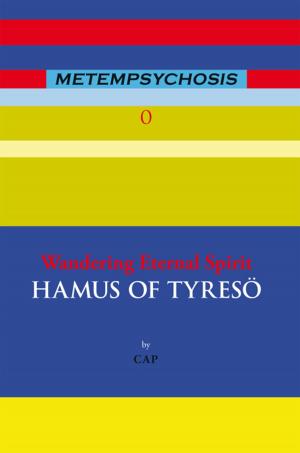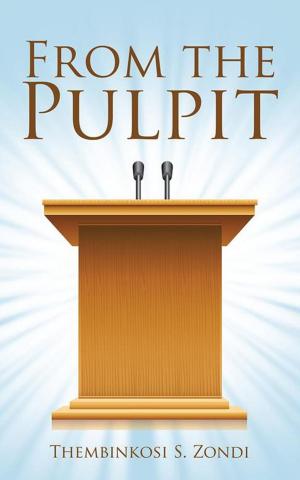Cometa - Last Queen of Sheba
A Novel of the New Era
Science Fiction & Fantasy, Science Fiction, Mystery & Suspense, Thrillers, Fiction & Literature| Author: | Gisela | ISBN: | 9781467017367 |
| Publisher: | AuthorHouse UK | Publication: | October 2, 2006 |
| Imprint: | AuthorHouse UK | Language: | English |
| Author: | Gisela |
| ISBN: | 9781467017367 |
| Publisher: | AuthorHouse UK |
| Publication: | October 2, 2006 |
| Imprint: | AuthorHouse UK |
| Language: | English |
Cometa-Last Queen of Sheba, a novel of the NEW ERA by GISELA (Gisela: nom-de-plume for the author - AA DaSilva) is sort of compilation of nine big essays which emerged from 1999 to 2004, when the author studied Languages and Psychology at London Guildhall and Alcal de Henares (Madrid). Only two of those 9 essays were written in English, however English Language appeared as most appropriate for the first attempt at developing something as a new thesis on the sweet illusion of happiness. Its a rough attempt (awkward at places, along these 9 long chapters) to depict a clear-cut picture of those quixotesque characters who try to weigh-up about the rat-race society and any possibility of transcendence in human life. The hug of Mother-Earth as Rod seems to advocate or, the Philosophy of the day as Pablo preaches it from behind the bar of his Caf Can this be enough help, along this nebulous adventure we call LIFE? Perhaps Portuguese originals (22 chapters, under the title Cometa-em busca da felicidade), which is soon expected to be handed to publishers, can bring more clarity to what we mean by sweet illusion of happiness. Cometa which is Spanish for kite should be understood as conscience, innocence or just soul... a bit like any last ray of hope to the old and decrepit King Solomon with no more hope for happiness than some last sweet look from his Queen of Sheba. ----------- Me? est? p????s???? ?s da??t?? Nothing is as inspirational as death, allegedly from Diogenes, 450 BC: this could be the very appropriate caption for Cometa-Last Queen of Sheba, but it just appears as a logo for the chapter II. Cadunt altis de montibus umbrae when twilight replaces sunshine, from Publius Ovidius Naso (40 BC 20AD) is a poetic quotation from Metamorphosis, opening chapter V of Cometa-Last Queen of Sheba. Circumstance and leitmotiv: September 11, early afternoon in Lisbon waiting for the train to Madridthose images from TV took my attention from Rebelion de las Masas and made me very sad indeed. ? Typing error: on page IX where it reads 1942 it should read 2042. http://pt.www.netlog.com/tonywriter http://www.facebook.com/#!/Tonywriter1946
Cometa-Last Queen of Sheba, a novel of the NEW ERA by GISELA (Gisela: nom-de-plume for the author - AA DaSilva) is sort of compilation of nine big essays which emerged from 1999 to 2004, when the author studied Languages and Psychology at London Guildhall and Alcal de Henares (Madrid). Only two of those 9 essays were written in English, however English Language appeared as most appropriate for the first attempt at developing something as a new thesis on the sweet illusion of happiness. Its a rough attempt (awkward at places, along these 9 long chapters) to depict a clear-cut picture of those quixotesque characters who try to weigh-up about the rat-race society and any possibility of transcendence in human life. The hug of Mother-Earth as Rod seems to advocate or, the Philosophy of the day as Pablo preaches it from behind the bar of his Caf Can this be enough help, along this nebulous adventure we call LIFE? Perhaps Portuguese originals (22 chapters, under the title Cometa-em busca da felicidade), which is soon expected to be handed to publishers, can bring more clarity to what we mean by sweet illusion of happiness. Cometa which is Spanish for kite should be understood as conscience, innocence or just soul... a bit like any last ray of hope to the old and decrepit King Solomon with no more hope for happiness than some last sweet look from his Queen of Sheba. ----------- Me? est? p????s???? ?s da??t?? Nothing is as inspirational as death, allegedly from Diogenes, 450 BC: this could be the very appropriate caption for Cometa-Last Queen of Sheba, but it just appears as a logo for the chapter II. Cadunt altis de montibus umbrae when twilight replaces sunshine, from Publius Ovidius Naso (40 BC 20AD) is a poetic quotation from Metamorphosis, opening chapter V of Cometa-Last Queen of Sheba. Circumstance and leitmotiv: September 11, early afternoon in Lisbon waiting for the train to Madridthose images from TV took my attention from Rebelion de las Masas and made me very sad indeed. ? Typing error: on page IX where it reads 1942 it should read 2042. http://pt.www.netlog.com/tonywriter http://www.facebook.com/#!/Tonywriter1946















